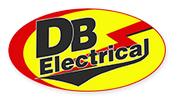
HOW TO FIND YOUR FITMENT
Two ways to ensure proper fitment
- Product Info
- Applications List
- Part Replacement List
- Policy Information
- Reviews
Quick Links
Product Info
Applications List
Part Replacement List
Policy Information
Reviews
Overview
Fast shipping and the lowest prices.
Find the right part for your make and model at DB Electrical.
Item Number: 1401-0511
100% Brand New Aftermarket Part From DB Electrical
Product Specs
| Item Condition | Aftermarket Part |
Applications List
Select Make & Type
| MAKE | TYPE | MODEL | YEAR | ENGINE |
| John Deere | 940, 1040, 1140, 1140F, 1350, 1550, 1750, 1850, 2040, 2150, 2155, 2240 and 2255 |
Replaces These Part Numbers
| John Deere | L34570 |
Frequently Asked Questions
Q: What are the most common causes of Hydraulic Pump failure?
A: The appropriate oil for your hydraulic pump depends on the specific requirements outlined in the manufacturer's recommendations. Generally, hydraulic systems commonly use hydraulic oils with properties such as:
Q: What is the best preventative maintenance for getting the most years of service? A: Just keep the systems tank/reservoir topped off with the proper fluid and serviced during the intervals recommended by the manufacturer. Hydraulic systems are pretty low maintenance. Some systems do not require changing the fluid at every service interval. Sometimes you just change the filter at service intervals. Sometimes it calls for a complete system flush and refilter. It just depends on the hours of usage or years that pump has been in use, along with the manufacturer’s maintenance service schedule. |
Customer Reviews
WARNING: California’s Proposition 65









